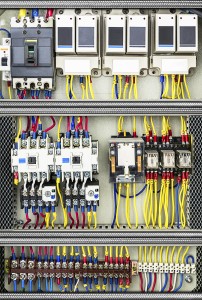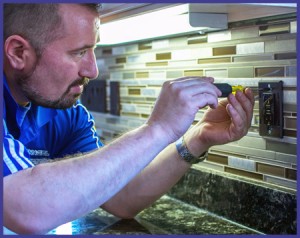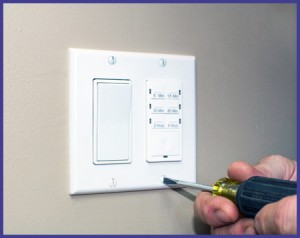Upgrading Your Electrical Panel
The average Pittsburgh household’s energy use has increased significantly over the past several decades. This is due in part to the increase of electronic devices such as computers and printers, kitchen appliances designed for convenience, and the number of entertainment equipment in the average home. According to data from Electricity Local, residential electricity consumption in Pennsylvania averages 837 kWh/month, ranking 32nd in the nation.
With a number of older homes present in a city such as Pittsburgh, there are still houses that utilize the “older” electrical panels which make use of fuses as opposed to circuit breakers. If this is the case, it is essential to update the electrical panel by a licensed electrician, as these types of panels are considered a fire hazard, with many insurance companies refusing to insure the property.

If you are considering adding onto your home, such as a patio/porch area or home addition, or are having a hot tub or air conditioning system which requires a lot of power, your current electrical panel may not provide sufficient energy to power these, which will cause your electrical needs to exceed your amp capacity, tripping your circuit breakers.
Even so, a circuit breaker panel that is more than ten years old may have difficulty meeting the increased demand for power in your home. As stated above, the average Pittsburgh household uses significantly more energy today than in the past, and the circuit panel can become overworked trying to keep up with your current electrical usage.
In addition, your electrical panel is a complex yet essential component of your household, and just like any device, particularly one that is used as frequently as it is, it will eventually require replacing. It is common in older electrical panels to have issues with corrosion, as well as mechanical wear in the breakers that can prevent them from properly tripping. If this is the case, there is the potential for igniting a fire, and it is crucial to have your electrical panel upgraded to provide for your current electrical needs.
Other common reasons for upgrading your electrical panel include:
- Irreparable damage to existing electrical panel
- Existing panel can no longer provide adequate power for electrical service upgrades
- Additional outlets are installed throughout the property
- Homeowners insurance requires an electrical panel replacement for liability reasons
If this is the case, it is important to contact a professional electrician. It is not recommended that installing an electrical panel be “Do-It-Yourself project. Any major electrical work that is done, whether it be for residential or commercial use, requires a licensed electrician, who has the knowledge and the experience to ensure that the new panel is matched to the needs of your property and presents no safety risks.
Hufnagel Electric, Pittsburgh’s, one of Pittsburgh area’s highest rated electrical contractors on Angie’s List, has the expertise to ensure that you receive the proper service for your electrical panel upgrade or replacement. Our commitment to quality and customer satisfaction means that we employ only experienced, licensed and trained electricians, to ensure that the job is done right the first time. If you are having problems with your current electrical panel, or feel that you may need an upgrade or replacement, contact us today for a free estimate.
 Why Should You Have GFCI Outlets?
Why Should You Have GFCI Outlets?


